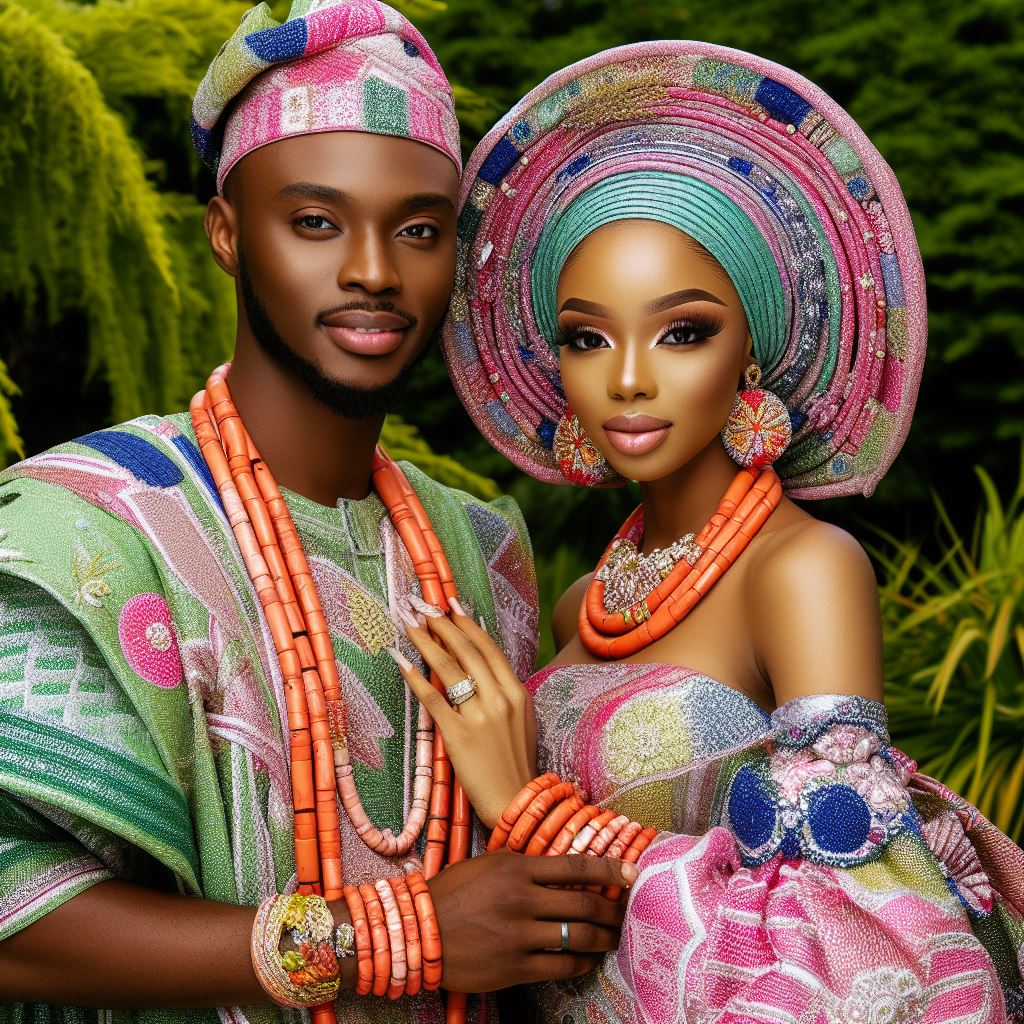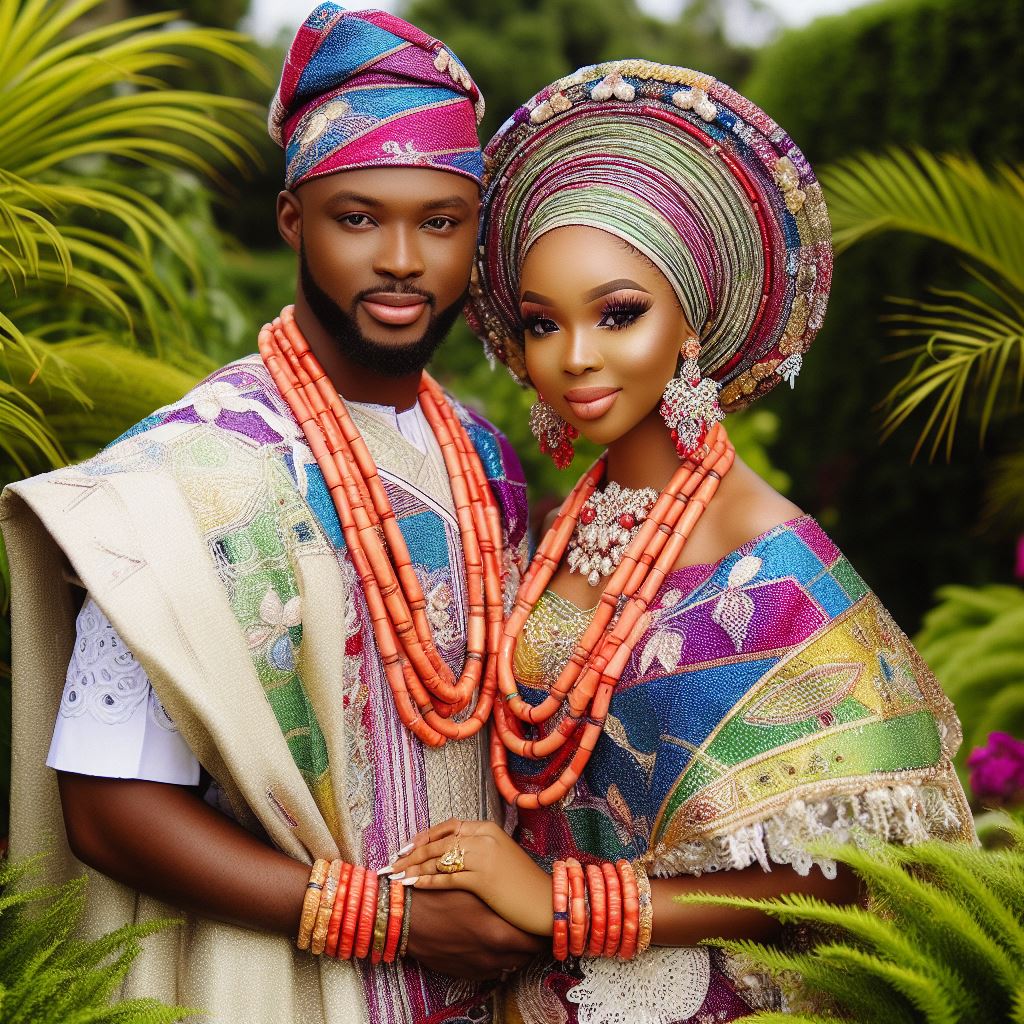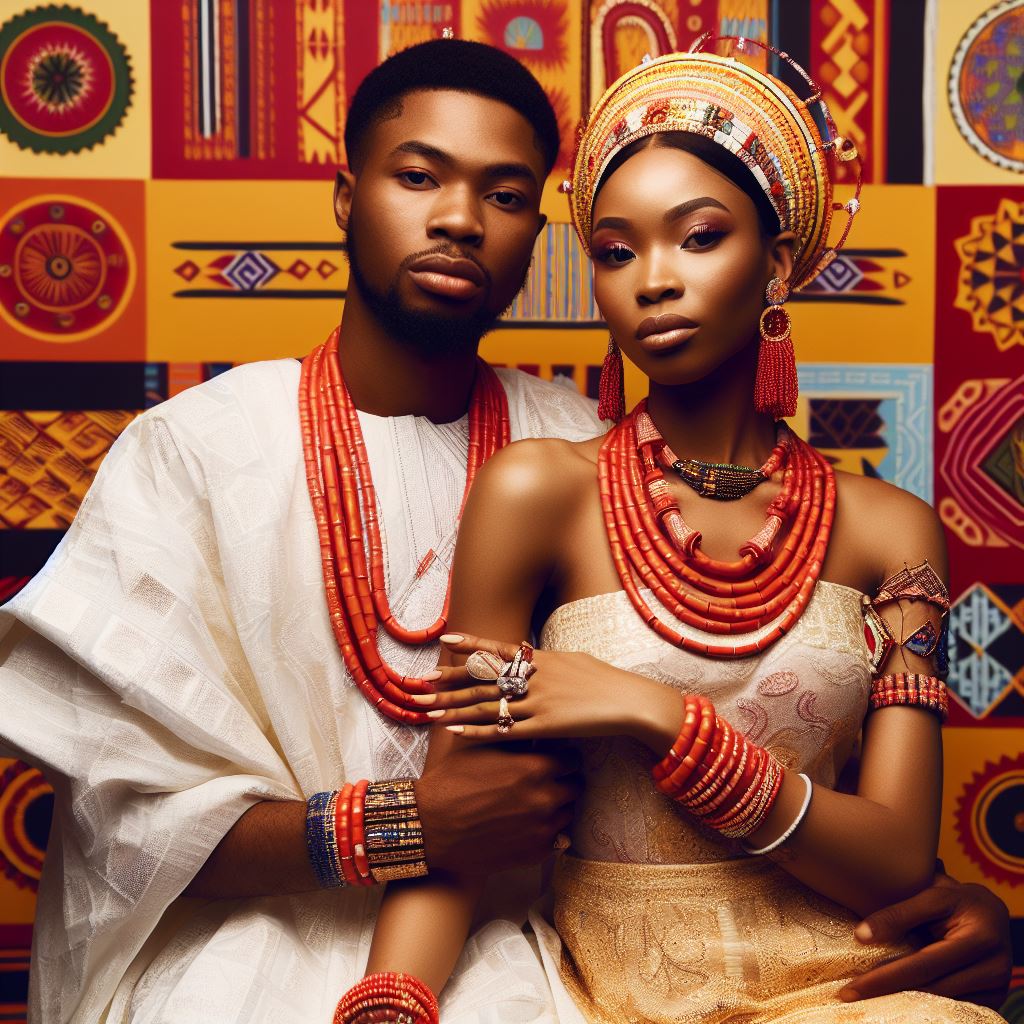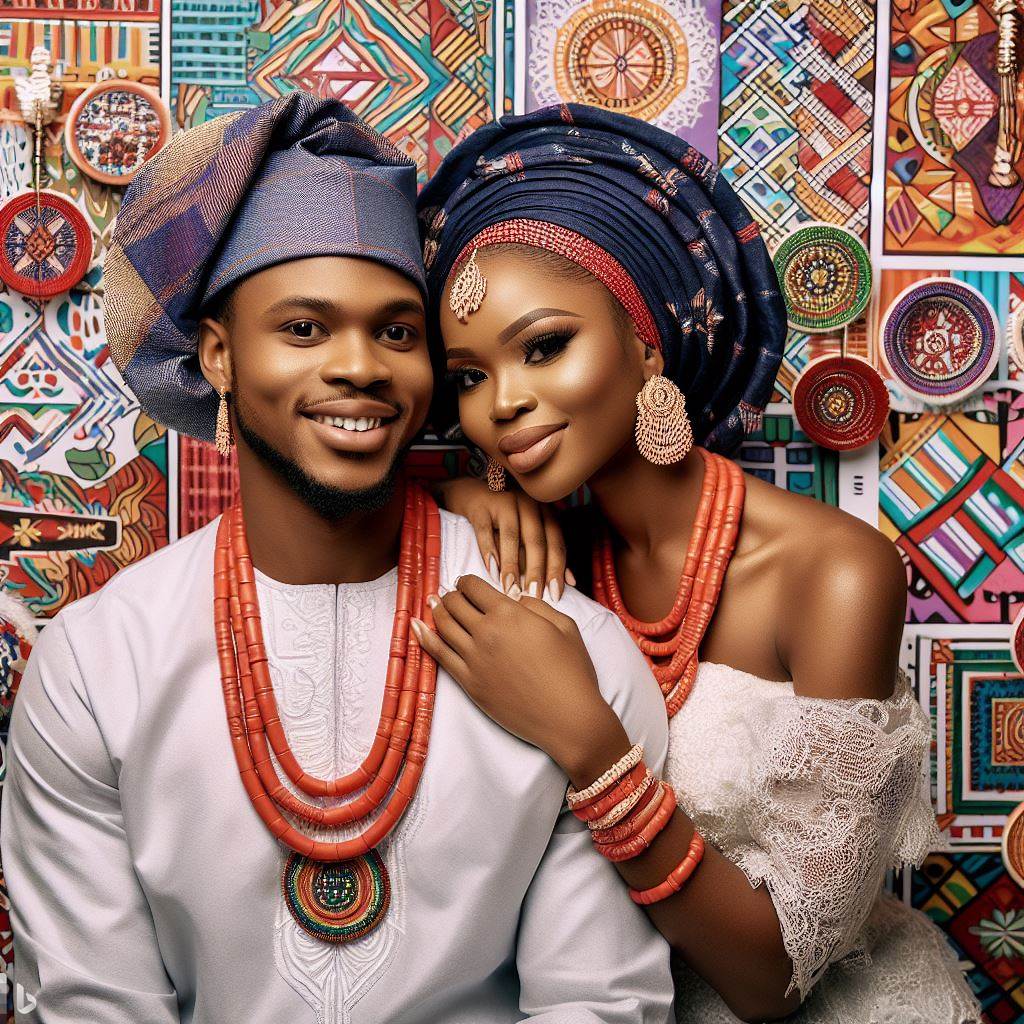Introduction
A. Brief explanation of the topic
Marriage, a significant institution, varies across cultures.
In Nigeria, this diversity is evident as different forms of marriages exist.
It is crucial to understand these variations to appreciate the cultural nuances and practices in Nigeria.
B. Importance of understanding the different forms of marriages in Nigeria
The importance of understanding the different forms of marriages in Nigeria cannot be overstated.
It allows us to appreciate the rich cultural heritage of the country and helps bridge the gap between different societies.
Knowledge about these forms also fosters respect and tolerance for diverse marital customs.
C. Thesis statement
The thesis statement for this blog section is: Nigeria has different forms for various marriages due to cultural diversity, historical practices, and religious influences.
Exploring these reasons will shed light on the fascinating traditions and customs surrounding marriages in Nigeria.
By delving into the reasons behind the different forms of marriages in Nigeria, we gain insight into the complexities of Nigerian society.
This understanding enables us to appreciate the intricate tapestry of cultures within the country, ultimately promoting cultural empathy and inclusivity.
In the following sections, we will discuss the cultural diversity, historical practices, and religious influences that contribute to the different forms of marriages in Nigeria.
Through this exploration, we will uncover the multiplicity and beauty of marital customs in the country.
Stay tuned for an enlightening journey into the world of Nigerian marriages.
Traditional Marriages in Nigeria
In Nigeria, traditional marriages are an essential part of the culture and society.
These marriages have different forms depending on the ethnic group and region.
A. Definition and Characteristics
A traditional marriage in Nigeria is a union between a man and a woman based on customary laws and practices. It involves various rituals, ceremonies, and traditions.
Traditional marriages emphasize the importance of family and community, not just the union between two individuals.
They are seen as a way to strengthen social ties and maintain cultural heritage.
B. Cultural Significance
Traditional marriages hold immense cultural significance in Nigeria.
They serve as a platform to showcase communal values, respect for ancestors, and the preservation of cultural traditions.
These marriages also contribute to socio-economic development as they bring together families, promote trade, and encourage unity among different tribes and ethnic groups.
C. Different Forms of Traditional Marriages
1. Igbo Traditional Marriage
- Igbo traditional marriages are rich in customs and practices.
- They involve elaborate ceremonies, negotiations, and exchange of gifts, such as kola nuts and drinks, which symbolize acceptance and goodwill.
2. Yoruba Traditional Marriage
- Yoruba traditional marriages are characterized by vibrant ceremonies, cultural dances, and the involvement of family members.
- Traditional rites such as the bride price payment and the tying of the bride’s waist beads are significant aspects.
3. Hausa Traditional Marriage
- Hausa traditional marriages are influenced by Islamic customs and traditions.
- They involve the negotiation of the bride’s dowry, the signing of marriage contracts, and the performance of Islamic prayers.
4. Other Ethnic Groups’ Traditional Marriages
- Besides the major ethnic groups, other ethnic groups in Nigeria also have their unique forms of traditional marriages.
- These include the Ijaw, Tiv, Efik, and many others, each with their distinct rituals and practices.
Basically, traditional marriages in Nigeria vary in form and are influenced by cultural, social, and religious factors.
They play a crucial role in maintaining cultural identity, promoting unity, and preserving age-old traditions.
Read: Laws and Requirements Surrounding the Marriage Form in Nigeria
Religious Marriages in Nigeria
- Marriage in Nigeria is a sacred institution that is influenced by the diverse religious beliefs of its people.
- With a population comprising various religious groups, it is inevitable that different forms of marriages exist to cater to the religious practices and traditions of each group.
- Christianity, Islam, and other traditional religions have a profound impact on the Nigerian society. As a result, these religions have their own distinct ways of conducting marriages.
A. Influence of religion on marriage
- Religion molds the views, beliefs, and practices of individuals when it comes to marriage.
- It provides guidelines and principles that shape the foundation of a lifelong commitment.
- Religious values strongly dictate the roles spouses play within a marriage, gender expectations, and the overall purpose of the union.
- This influence extends to the rites and rituals performed during marriage ceremonies.
B. Different forms of religious marriages
1. Christian marriages
- Christianity is one of the dominant religions in Nigeria, and it encompasses various denominations.
- Consequently, there are different approaches to conducting Christian marriages.
Catholic marriage
- In the Catholic Church, marriage is viewed as a sacrament.
- The couple is expected to undertake pre-marital counseling and adhere to specific requirements set by the church.
Protestant marriage
- Protestant denominations also have their own customs and traditions when it comes to marriage.
- These may vary in terms of officiating ministers, ceremony format, and inclusion of certain symbolic rituals.
Pentecostal marriage
- Pentecostal churches emphasize a more spiritual and lively wedding ceremony.
- It often involves intense prayers, hymns, and manifestations of the Holy Spirit’s presence.
2. Islamic marriages
- Islam is another major religion in Nigeria, especially in the northern regions.
- Islamic marriages are conducted according to the teachings of the Quran and the Hadith.
- The process varies depending on the Islamic school of thought followed by the individuals involved.
- However, key components include the consent of both parties, the payment of dowry, and the presence of witnesses.
3. Other religious marriages
- Besides Christianity and Islam, Nigeria is also home to various indigenous religions.
- These religions have their own distinctive rituals and customs surrounding marriage.
For example, the Yoruba traditional religion includes traditional wedding ceremonies that involve intricate rites, ancestral worship, and the honoring of deities.
In essence, religion exerts a significant influence on the diverse forms of marriages in Nigeria.
Whether it is a Christian, Islamic, or traditional religious marriage, these different forms are a testament to the country’s rich cultural heritage and the deep-seated religious beliefs of its people.
Read: From Courtship to Marriage: Tales from Port Harcourt
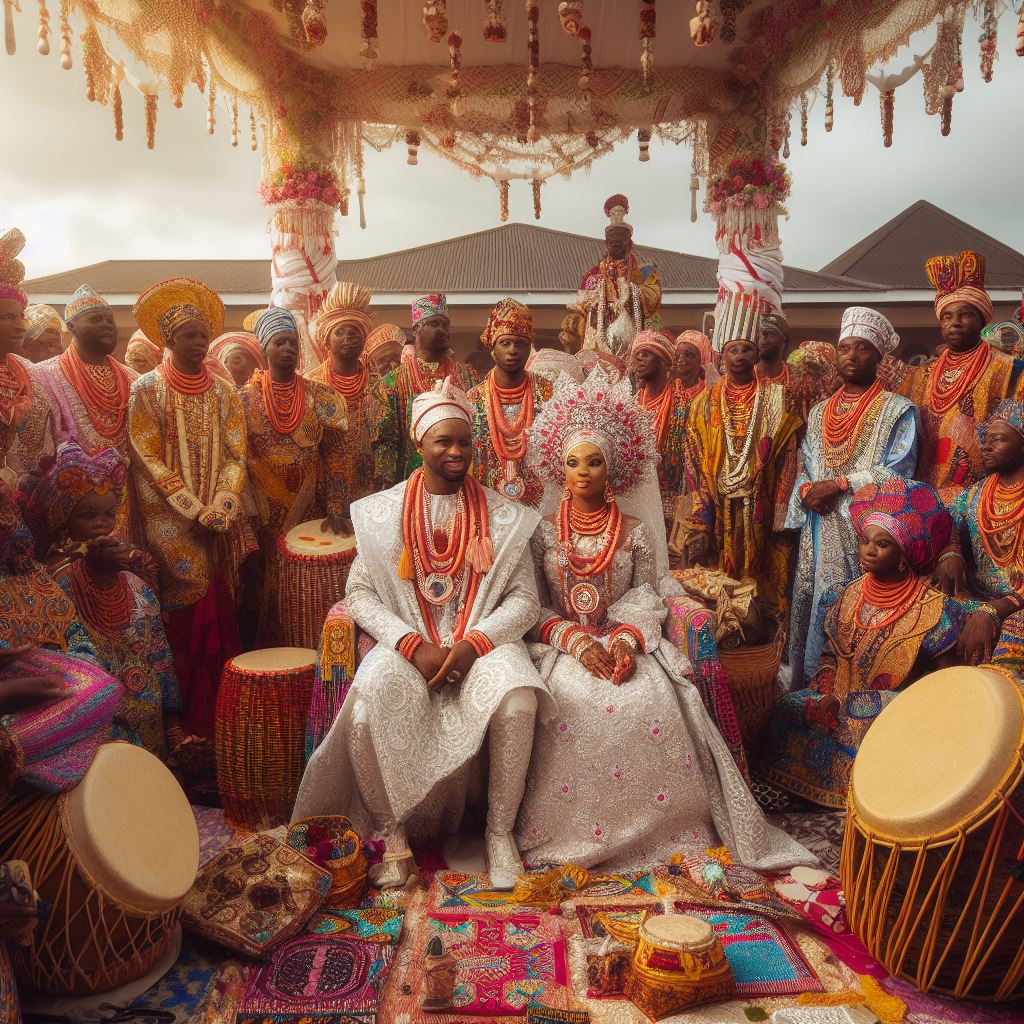
Civil Marriages in Nigeria
A. Introduction of Civil Marriages
Civil marriages refer to legal unions recognized by the government rather than religious institutions.
These marriages play a significant role in Nigerian society, contributing to legal stability and social cohesion.
B. Role of Civil Marriages in Nigerian Society
- Civil marriages serve as a legal framework for couples to establish their rights and obligations.
- They provide safeguards for inheritance, property division, and child custody in the event of separation or death.
- Furthermore, civil marriages promote gender equality by granting equal rights and protection to both spouses.
C. Different Forms of Civil Marriages
1. Court Marriage
- Court marriages are solemnized in a court of law with a registrar and two witnesses present.
- These ceremonies are typically short and straightforward, focusing on the legal requirements for marriage.
- After the ceremony, a marriage certificate is issued, legally recognizing the union of the couple.
2. Registries and Marriage Certificates
- Registries are designated government offices where civil marriages can be registered and certificates obtained.
- Couples must provide relevant documents such as birth certificates, identification cards, and proof of divorce (if applicable).
- By registering their marriage, couples ensure its legal validity and protect their rights under Nigerian law.
- Marriage certificates serve as official proof of marriage, often required for various legal and administrative purposes.
- They are essential for issues like obtaining passports, opening joint bank accounts, and applying for spousal benefits.
In short, civil marriages in Nigeria play a crucial role in providing legal protection and societal stability.
Through court marriages and registries, couples can establish their union within the framework of the law.
These different forms of civil marriages enable Nigerians to ensure their rights and navigate legal requirements efficiently.
By embracing civil marriages, Nigeria recognizes the diversity of its population and provides equal opportunities for all couples.
Read: Behind the Veil: Untold Stories of Nigerian Brides
Learn More: Marriage and Work-Life Balance in Nigeria Today
Reasons for Having Different Forms of Marriages in Nigeria
Marriage is an important institution in Nigeria, and it is influenced by various factors including cultural diversity, religious diversity, and the legal framework of the country.
Nigeria has different forms of marriages due to these reasons.
A. Cultural diversity
A. Cultural diversity plays a significant role in the existence of different marriage forms in Nigeria.
The country is home to hundreds of ethnic groups, each with its own cultural traditions and practices.
1. Preservation of cultural traditions
- One reason for having different forms of marriages is the preservation of these cultural traditions.
- Different ethnic groups have specific marriage customs, rituals, and ceremonies that they consider essential to their cultural heritage.
- By recognizing and allowing different forms of marriages, Nigeria ensures the preservation of its cultural diversity.
2. Respect for ethnic identity
- Another reason for having different forms of marriages in Nigeria is the respect for ethnic identity.
- Each ethnic group has its own unique identity, and marriage is an important aspect of expressing and maintaining that identity.
- By allowing different forms of marriages, Nigeria acknowledges and respects the diverse ethnic identities within the country.
- This helps foster a sense of belonging and unity among the various ethnic groups.
B. Religious diversity
Religious diversity is also a significant factor contributing to the different forms of marriages in Nigeria.
1. Accommodating different beliefs and practices
- Nigeria is divided between Christianity, Islam, and traditional African religions.
- Each of these religious beliefs has its own understanding of marriage and its practices.
- Having different forms of marriages allows the accommodation of different beliefs and practices within the religious spectrum of the country.
2. Legal and religious implications
- Additionally, legal and religious implications make it necessary to have different forms of marriages in Nigeria.
- Some religious marriages may not have legal recognition, while others may have legal implications and requirements.
- By having different forms of marriages, Nigeria ensures that both legal and religious aspects are addressed appropriately, respecting the rights and beliefs of individuals involved.
C. Legal framework and government policies
The legal framework and government policies in Nigeria also play a crucial role in the existence of different forms of marriages.
1. Recognition and protection of different marriage forms
- The recognition and protection of different marriage forms are essential for ensuring the rights and welfare of individuals involved.
- Nigeria has laws and policies that cater to different marriage forms, providing legal protection and support to those who follow such traditions.
2. Influence of colonial history
- Furthermore, the influence of colonial history has shaped the different forms of marriages in Nigeria.
- During the colonial era, Nigeria was under British rule, and British colonial policies and legal systems significantly influenced the country’s marriage practices.
- Some forms of marriages, such as civil marriages, were introduced during this time and continue to exist alongside traditional and religious forms of marriages.
Ultimately, the existence of different forms of marriages in Nigeria can be attributed to cultural diversity, religious diversity, the legal framework, and government policies.
Recognizing and respecting cultural and ethnic traditions, accommodating diverse religious beliefs and practices, as well as addressing legal and historical influences, are crucial in maintaining a harmonious and inclusive society.
Nigeria’s commitment to embracing its diversity is evident in the various forms of marriages allowed within the country.
Read: Yoruba-Inspired Marriage Congratulations Messages
Conclusion
A. Recap of the main points
Nigeria has different marriage forms due to cultural diversity and legal recognition.
These forms include Islamic, Christian, and Customary marriages.
B. Importance of embracing the diversity in marriage forms
Embracing diverse marriage forms promotes cultural tolerance and respect, enabling Nigerians to uphold their traditions and beliefs.
C. Closing thoughts
In the end, Nigeria’s various marriage forms reflect its rich cultural heritage and legal system.
Recognizing and respecting these differences is essential in maintaining social harmony and unity.

